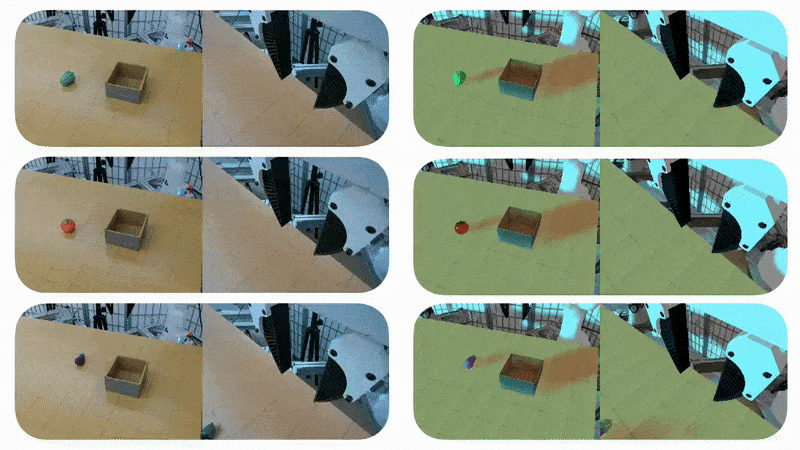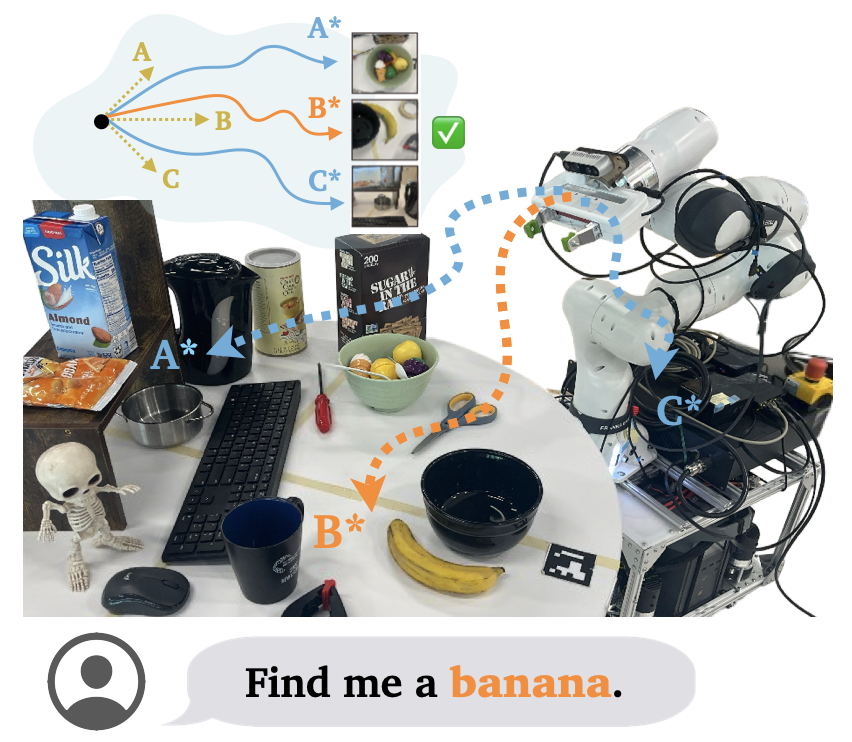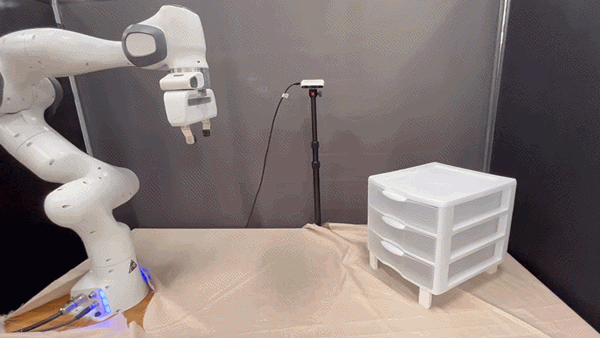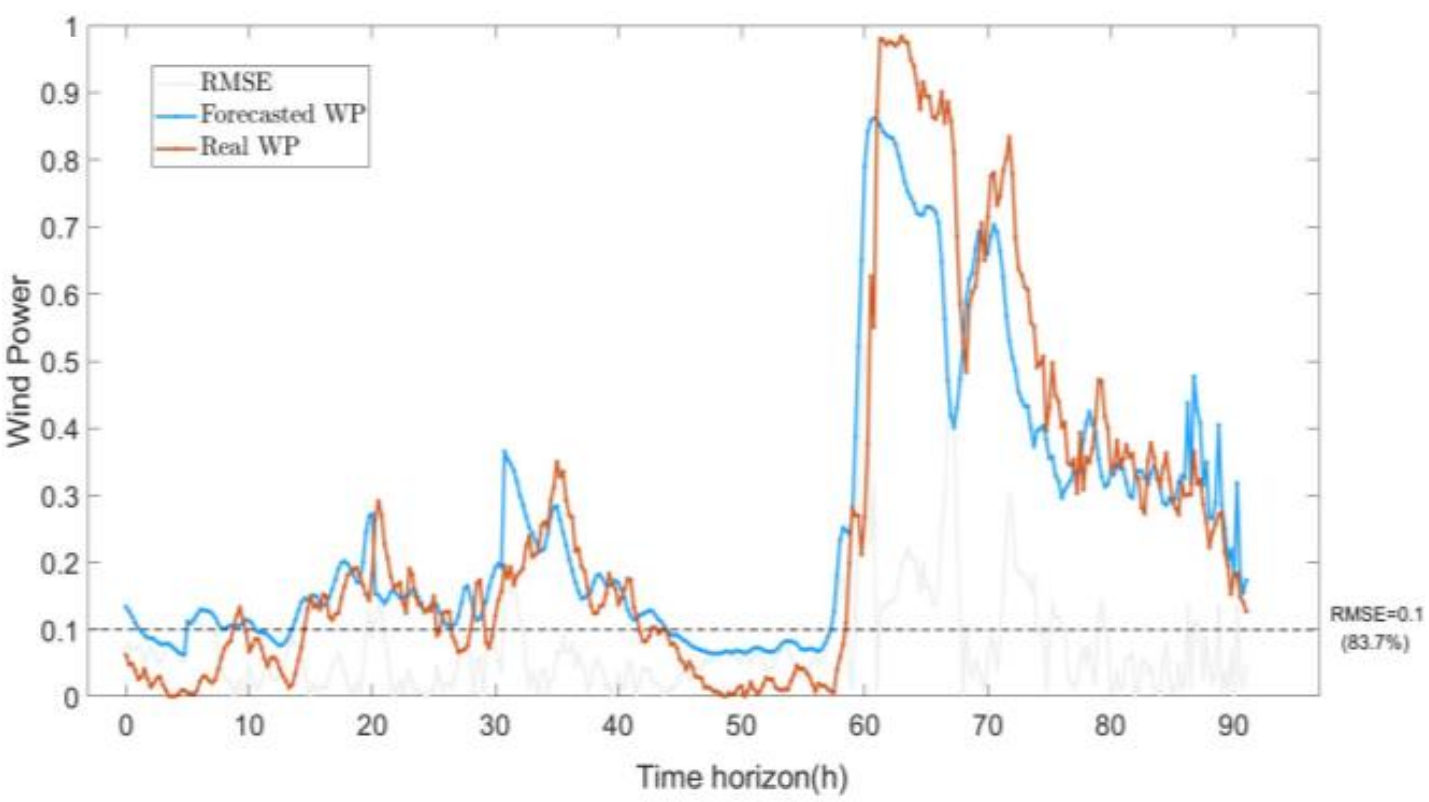
|
|
|
|

|
Reliable and Scalable Robot Policy Evaluation with Imperfect SimulatorsarXiv 🏅 Best Paper Award, CoRL 2025 Eval&Deploy workshop arxiv / website We present a framework that augments real-world evaluations with simulation evaluations to provide stronger inferences on real-world policy performance that could otherwise only be obtained by scaling up real-world evaluations. |

|
Actions as Language: Fine-Tuning VLMs into VLAs Without Catastrophic ForgettingarXiv arxiv / website We introduce VLM2VLA, a VLA model training paradigm that represents low-level robot actions in natural language to better align the robot fine-tuning data with the base VLM’s representation space. VLM2VLA yields a policy with strong VQA performance and zero-shot generalization to new scenarios. |

|
WoMAP: World Models For Embodied Open-Vocabulary Object LocalizationCoRL 2025 Conference on Robot Learning (CoRL), 2025 🏅 Best Paper Award, RSS 2025 SWoMo and SemRob workshops arxiv / video / code / website We introduce World Models for Active Perception (WoMAP), a scalable recipe for training open-vocabulary object localization policies that are grounded in the physical world. |

|
Guiding Data Collection via Factored Scaling CurvesarXiv 🏅 Spotlight, RSS 2025 CRLH workshop arxiv / talk / video / code / slides / website We introduce Factored Scaling Curves (FSC), which model how policy performance scales with data for different environmental factors and can be extrapolated to guide principled data collection. |

|
Distilling and Retrieving Generalizable Knowledge for Robot Manipulation via Language CorrectionsICRA 2024 International Conference on Robotics and Automation, 2024 arxiv / code / website We propose DROC that can respond effectively to online human language corrections, distill generalizable knowledge from corrections, and retrieve usable knowledge for future tasks. |

|
DoReMi: Grounding Language Model by Detecting and Recovering from Plan-Execution MisalignmentIROS 2024 International Conference on Intelligent Robots and Systems, 2024 arxiv / website We show how to leverage LLMs to generate constraints that can indicate misalignment during execution, and use VLMs to detect constraint violations continuously. |

|
An Ultra-Short-Term and Short-Term Wind Power Forecasting Approach Based on Optimized Artificial Neural Network with Time Series ReconstructionSPIES 2022 International Conference on Smart Power & Internet Energy Systems, 2022 🏅 Best Presentation Award paper We propose using time series reconstruction to process serial wind power data and achieve state-of-the-art wind power prediction accuracy. |
|
|
Design and source code from Jon Barron |